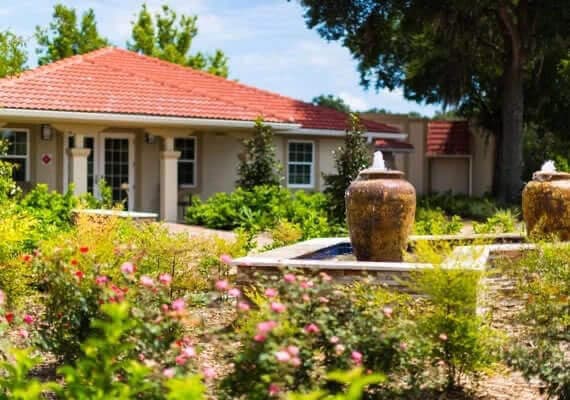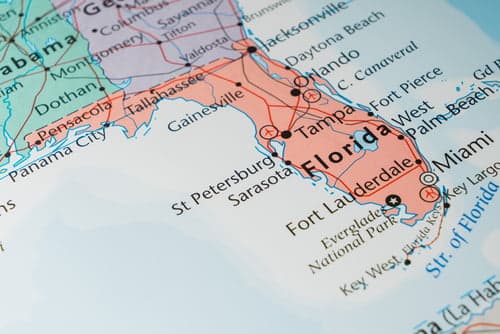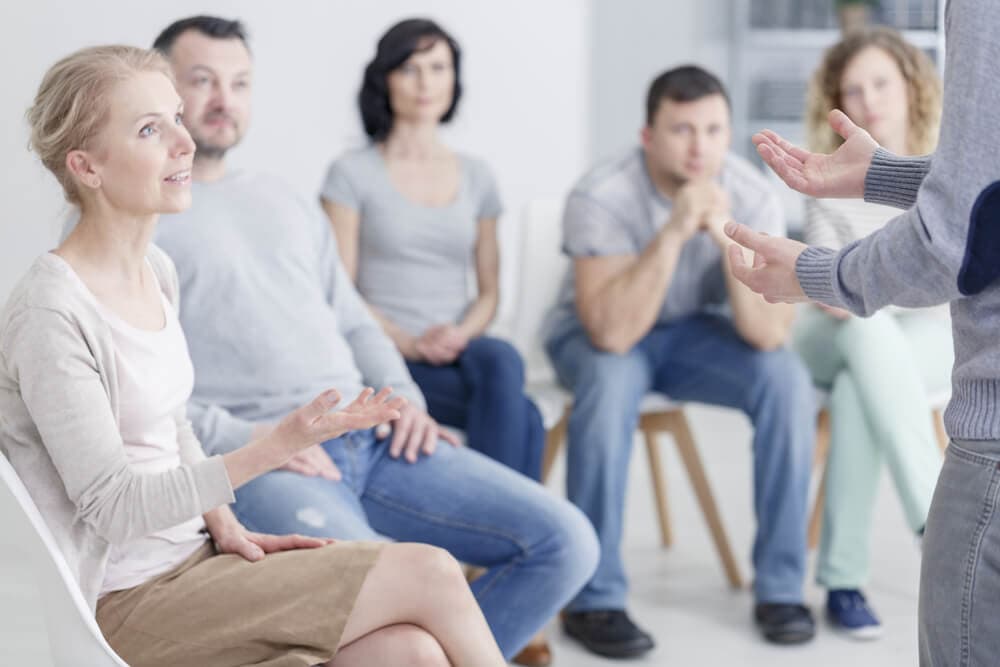Addiction & Rehab in Florida
Addiction Information & Rehab Options in Florida
Addiction is a devastating and widespread problem in Florida.1 Fortunately, the Sunshine State has many available resources for treatment and support. Read on to learn more about finding local rehabilitation centers, emergency services, paying for treatment, and general info on substance abuse in the region.
Florida Drug & Alcohol Rehab

Addiction is a chronic and complex disease, but recovery is possible. It’s common for people struggling with addiction to need professional help to get sober and remain in recovery.2
Addiction treatment typically involves 3 main phases: detoxification, rehabilitation, and aftercare. Detox is a crucial phase of treatment for many patients, but by itself it is largely ineffective in preventing relapse. Rehabilitation is where these individuals build the necessary skills to achieve long-term sobriety.2
Following rehab, many people benefit from aftercare programs that help them maintain focus and build a supportive network.3
Finding Addiction Treatment in FL
Effective addiction treatment comes in different forms. The rehab setting, length of time, and combination of therapies (as well as the need for medication) varies based on the needs of different individuals.2
People seeking addiction treatment in Florida have many different options for addiction treatment available to them. Common forms of addiction treatment include:4
- Detox.
- Interim care (while someone waits to be admitted to inpatient rehab).
- Outpatient treatment.
- Inpatient treatment (in a hospital setting).
- Residential treatment.
- Sober living facilities.
How to Choose a Drug Rehab Facility
It is crucial that treatment takes an integrated approach, addressing all factors that may lead someone to drink or use drugs, which include co-occurring mental disorders, social problems, concerns of domestic violence, and legal problems.2
The levels of addiction care provided at River Oaks include:
- Medical detox.
- Inpatient treatment.
- Residential treatment.
- Partial hospitalization (day treatment).
- Intensive outpatient care.
Sometimes someone’s addiction treatment necessitates administering medication, which River Oaks is equipped to provide.
River Oaks also helps facilitate entry into aftercare, such as 12-Step programs or transitional housing if necessary. Additionally, there are specialized treatment tracks for various demographics, like the:
Narcan & Overdose Resources in Florida

Florida offers a variety of substance abuse services to help during a crisis involving drugs or alcohol. From emergency first responders to dedicated hotlines, Floridians have many options for getting help in their state.
Naloxone (Narcan)—a medication that can reverse an opioid overdose—is an important life-saving tool that is now available in Florida without a prescription.5,6 If you, a family member, or someone you live with takes opioids as a prescription or abuses painkillers and/or heroin, obtaining naloxone and learning how to use it in case of emergency is vital. It is much easier to get now than it used to be. We’ll show you how to find it.
Is Narcan Free in Florida?
Narcan is available in most Florida pharmacies without a prescription. While it is covered by most insurance policies, including Medicaid, there may be a co-pay required.
Paying for Addiction Treatment in Florida

The cost of rehab in Florida is highly variable. Costs depend on numerous factors, including but not limited to:
- How someone pays for treatment (i.e., with or without insurance).
- The extent of their insurance coverage.
- The type of treatment needed.
- The facility itself.
Cost is one of the most common barriers, often stopping people from getting the help they need. But with federal mandates like the Affordable Care Act (ACA) and mental health parity laws, the overwhelming majority of Americans with health coverage have insurance that covers rehab.7
Even without insurance, there are options to help handle the cost of rehab. Some rehab facilities may offer different payment options, such as financing, “sliding scales” (which provide discounts for people with low incomes), or scholarship programs.
Government-funded rehab centers may also be able to provide free or low-cost rehab for eligible individuals, though these programs typically have strict criteria for acceptance and long waiting lists. Medicaid, which someone may enroll in year-round, is a government-funded assistance program that provides healthcare at a lower cost for low-income individuals.9,10
Insurance Coverage for Rehab in FL
Most people with insurance will have coverage for addiction treatment in Florida. However, the extent of this coverage varies between policies. It is important to visit an in-network facility when using insurance to pay for addiction treatment, as this usually results in lower out-of-pocket costs.11
River Oaks accepts coverage from many common insurers, such as Humana, TRICARE, Aetna, and more.
To see if your insurance carrier provides coverage at River Oaks, fill out our confidential . If you prefer to speak to a representative directly or want more detailed information on insurance coverage and what to expect from the treatment admissions process, please reach out to an admissions navigator at .
Check Your Insurance Coverage
You can see whether your insurer covers treatment at River Oaks within minutes by using the HIPAA-compliant online form below. You’ll need your:
- Email address.
- Name of your insurer.
- Insurance policy number.
FAQs
Get answers to some of the most commonly asked questions about treatment for drug and alcohol addiction in Florida.
Getting Help for Substance Abuse
Common Questions About Rehab
Learn more about finding the right rehab for addiction treatment. Our list of FAQs also offers quick answers to common questions about treatment at River Oaks: general, patient, and families.
Getting to River Oaks
River Oaks is a drug & alcohol treatment center in Riverview, FL, just outside of Tampa. We offer a full continuum of care including detox, inpatient rehab, outpatient therapy, and sober living. Click here for admissions info and directions to our facility.
Paying for Treatment
One of the first questions people often ask when considering rehab is, "What will it cost?" Starting recovery does not have to be expensive; in many cases, insurance will cover some or all of the costs. Learn more about payment options for rehab.
Local Events & Education
